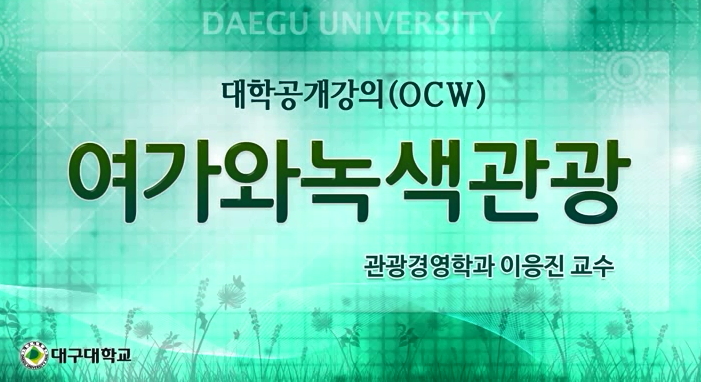이 논문은 최근 정부의 사회복지정책 기조로 채택된 사회투자국가 전략이 한국 농촌 및 농촌복지가 안고 있는 문제해결에 적합한지를 판단하기 위해 계획되었다. 산업화과정에서 배제된 농...
http://chineseinput.net/에서 pinyin(병음)방식으로 중국어를 변환할 수 있습니다.
변환된 중국어를 복사하여 사용하시면 됩니다.
- 中文 을 입력하시려면 zhongwen을 입력하시고 space를누르시면됩니다.
- 北京 을 입력하시려면 beijing을 입력하시고 space를 누르시면 됩니다.
https://www.riss.kr/link?id=A76153989
- 저자
- 발행기관
- 학술지명
- 권호사항
-
발행연도
2007
-
작성언어
Korean
- 주제어
-
자료형태
학술저널
- 발행기관 URL
-
수록면
7-61(55쪽)
- 제공처
-
0
상세조회 -
0
다운로드
부가정보
국문 초록 (Abstract)
이 논문은 최근 정부의 사회복지정책 기조로 채택된 사회투자국가 전략이 한국 농촌 및 농촌복지가 안고 있는 문제해결에 적합한지를 판단하기 위해 계획되었다. 산업화과정에서 배제된 농촌은 경제, 사회, 교육, 문화 등 모든 면에서 부진을 면치 못하고 있으며, 최근 압박되어오는 농업무역개방으로 인해 더욱 더 자생의 힘을 잃어가고 있다. 논문은 이러한 상황에서 농촌에 대한 사회투자는 그 어느 때 보다 시급한 실정이지만 ‘무복지에서 복지를 창출’해야 하는 농촌의 경우, 사회투자국가 전략을 도시와 동일한 체계와 수준으로 적용할 수 없다는 견해를 견지하고 있다. 그 근거로 연구자는 현재 농촌, 농민, 농촌복지가 안고 있는 현실-인구감소와 노동인력의 한계, 소득감소와 부채, 인적자원투자의 한계, 사회복지제도의 한계, 사회복지인프라의 한계, 사회복지재정의 한계-을 설명하고, 이러한 한계적 상황에서 사회투자의 전제조건은 농촌에 대한 차별적 인식의 제거와 더불어, 선택과 집중이 아닌 무차별적 연대를 기초로 한 농촌인지적 사고와 제도의 확립에 있음을 제시한다.
다국어 초록 (Multilingual Abstract)
Recently, Korean government takes the social investment state strategies as the core social welfare policy. This article was prepared for figuring out whether these strategies are appliable to solve the present problems in Korean rural areas. Through ...
Recently, Korean government takes the social investment state strategies as the core social welfare policy. This article was prepared for figuring out whether these strategies are appliable to solve the present problems in Korean rural areas. Through the industrialization, Korean rural areas has been isolated from every sides in economy, welfare, education, culture and so on. Moreover, it is critical time to the farmers in the area due to consistently pressured agriculture open trade policy. All factors around rural areas let them losing the power of self-living. Under this circumstance, this article emphasizes that social investment in rural areas is strongly needed in any time of our history. In case of Korean rural area in where creation of social welfare from no-welfare is needed, however, the social investment strategies can not be applied under the same system and with the same level as urban areas. For the support of this opinion, the researcher investigates the realities around rural areas, farmers, and rural welfare-population reduction and limits of labour power, income shortage and financial debt, limits of human resource investments, limits of social welfare institute, limits of social welfare infra, and limits of social welfare budget- and suggests that pre-condition of social investment is elimination of discrimination against rural areas with pursuing rural-sensitive perspectives and institute under the ground of undifferentiated social solidarity.
목차 (Table of Contents)
- 초록
- Ⅰ. 서론
- Ⅱ. 사회투자국가와 한국 농촌 논의의 출발
- Ⅲ. 농촌, 농민, 농촌복지의 현실
- Ⅳ. 한국 농촌(복지)의 현실에 따른 사회투자국가 전략 견해
- 초록
- Ⅰ. 서론
- Ⅱ. 사회투자국가와 한국 농촌 논의의 출발
- Ⅲ. 농촌, 농민, 농촌복지의 현실
- Ⅳ. 한국 농촌(복지)의 현실에 따른 사회투자국가 전략 견해
- Ⅴ. 결론
- 참고문헌
- Abstract
동일학술지(권/호) 다른 논문
-
- 비판과 대안을 위한 사회복지학회
- 김종덕(Kim Jong Duk)
- 2007
-
- 비판과 대안을 위한 사회복지학회
- 박순우(Park Soon Woo)
- 2007
-
- 비판과 대안을 위한 사회복지학회
- 이주희(Lee Joo Hee)
- 2007




 DBpia
DBpia






